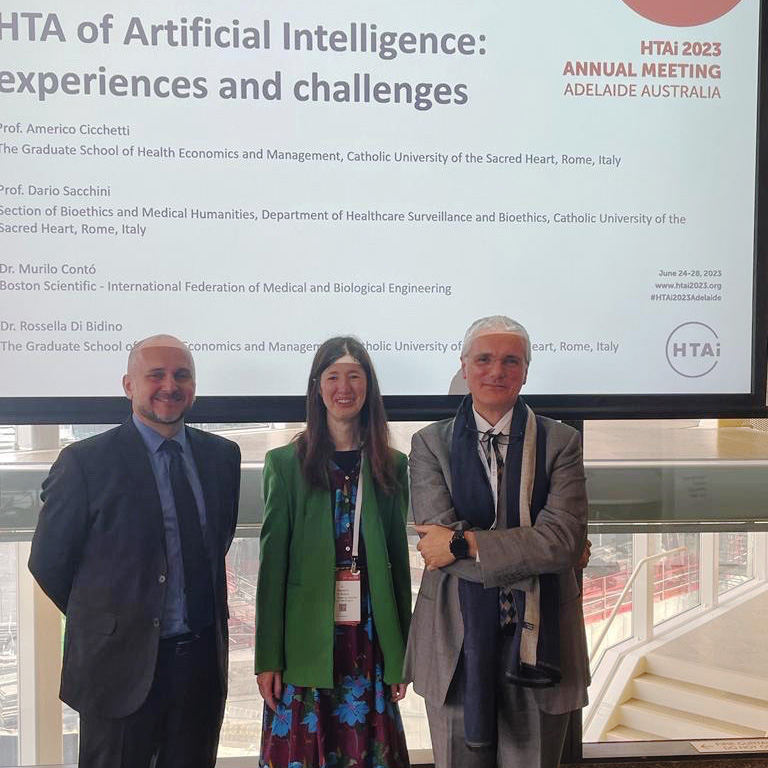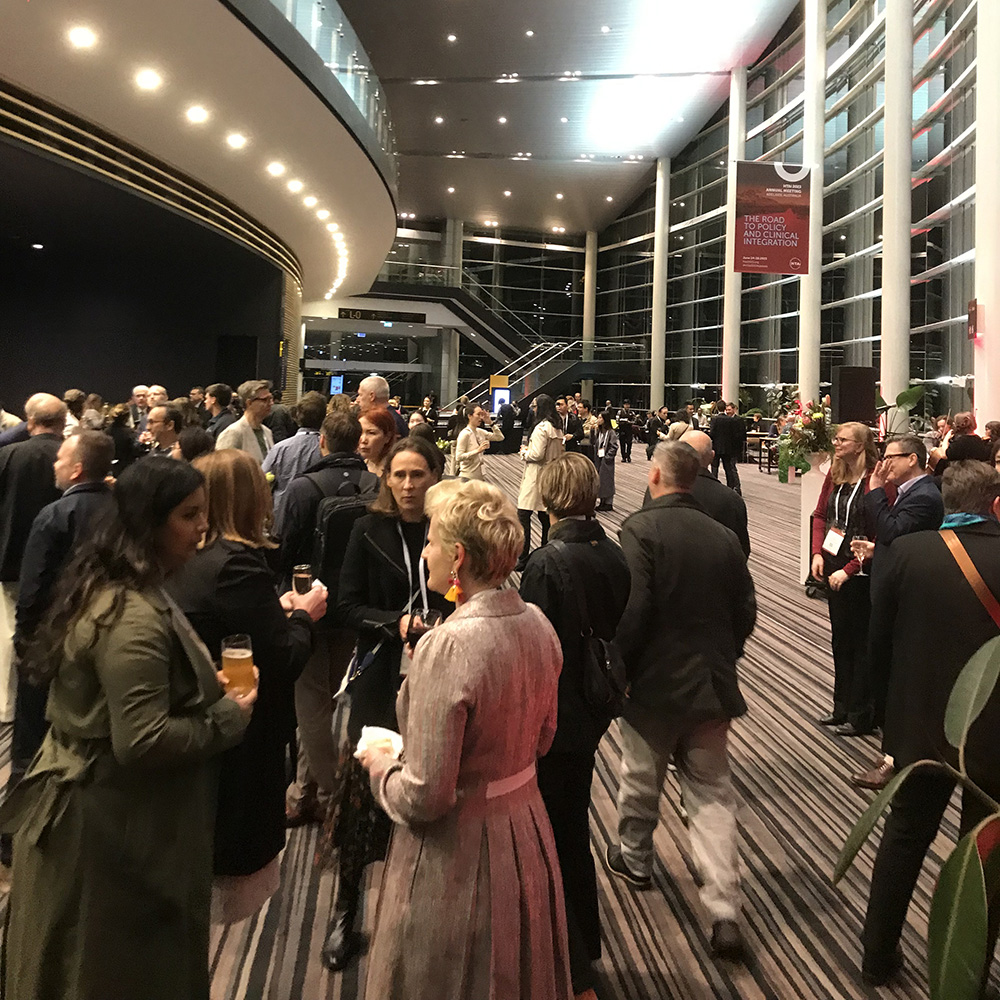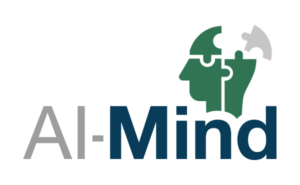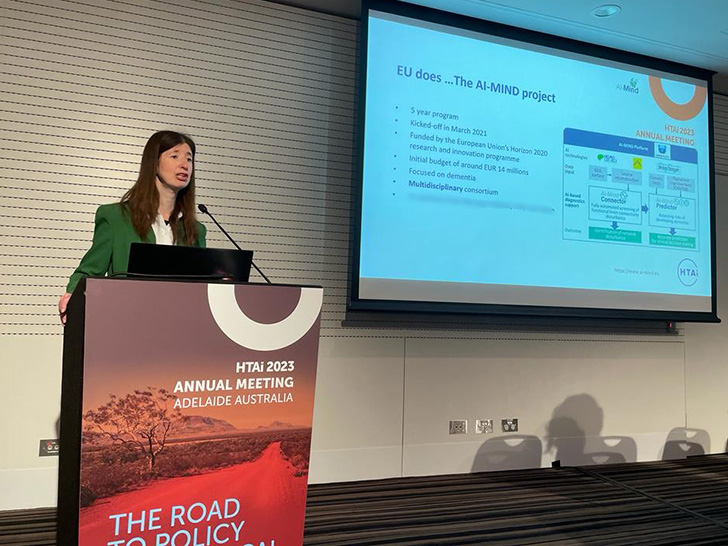AI-Mind shines at HTAi Annual Meeting 2023: The Road to Policy and Clinical Integration
We are delighted to share that the AI-Mind project made a significant impact at the HTAi Annual Meeting 2023, which focused on “The Road to Policy and Clinical Integration.
The project’s contributions were praised as a crucial step towards defining assessment methods for AI-based technologies. Even more exciting is the fact that the pre-conference workshop was the first one ever dedicated to HTA for artificial intelligence (AI) – say Dr. Rossella di Bidino (lead of WP6) and Prof. Americo Cicchetti.
Key takeaways reported by AI-Mind partners from USCS, specifically from the HTA of AI Unit of the Advanced Graduate School of Health Economics and Management (ALTEMS).

Alignment and Harmonization: The HTAi Annual Meeting 2023 provided an excellent platform for sharing experiences and perspectives on the importance of aligning regulation, reimbursement, clinical guidelines, health service delivery, and the assessment of health technologies. Discussions emphasized the need for harmonized frameworks to examine and evaluate these technologies effectively.
Lifecycle Alignment: The event highlighted the significance of aligning processes throughout the health technology lifecycle. This holistic approach ensures seamless integration and evaluation of health technologies, including AI-based tools like the ones developed within the AI-Mind project. The discussions shed light on the challenges and opportunities in this area.
Enthusiasm for AI-Mind: The attendees were captivated not only by the results of the Delphi Panel but also by the methodologies adopted to define an HTA framework for AI-based technology in AI-Mind. The composition of the project’s consortium was recognized as a significant added value. The project was described as unique, innovative, and essential. Numerous questions and discussions emerged during sessions and conference breaks, showcasing the high level of interest in the AI-Mind initiative.
The HTAi Annual Meeting 2023 witnessed participation from over 700 attendees. The pre-conference workshop on “HTA of Artificial Intelligence: Experiences and Challenges” on Sunday, June 25, drew more than 40 participants. Additionally, the panel on HTA and Medical Devices attracted around 60 participants, further highlighting the relevance and interest in AI-Mind.
The active involvement of diverse stakeholders in the workshops and the panel session, including HTAi experts, patient representatives, and industry professionals, was highly appreciated. We thereby extend our gratitude to all participants, contributors, and stakeholders for their enthusiasm and engagement with AI-Mind representatives at the HTAi Annual Meeting 2023. The event has boosted AI-Mind partners’ commitment to optimise the clinical value of AI-based tools for dementia risk prediction developed in the project. Through this dedication, we aim to enhance healthcare services for future patients, delivering innovative solutions that make a meaningful impact.
Stay tuned for more updates as we continue to make significant strides in AI-Mind always ready to share the most recent news.

A few words about the HTAi framework in AI-Mind
As part of the framework development, AI-Mind partners from Radboud University Medical Centre and ALTEMS involve the utilization of the EUnetHTA Core Model, systematic literature reviews, and comprehensive searches of HTA agencies and institutional organisations. To ensure the framework’s validity, an expert panel consisting of policymakers, HTA professionals, AI experts, and other key stakeholders will validate its findings.
Excitingly, the framework also explores the use of early health technology assessment. This includes modelling the potential cost-effectiveness of implementing new technologies and providing decision-makers with valuable insights into potential health gains and cost savings associated with technology adoption. Furthermore, these models will guide the direction of further technology development and research to maximize their potential value. The assessment will specifically focus on the early prediction of dementia in subjects with MCI, evaluating its potential health impact and cost-effectiveness within the healthcare system.


